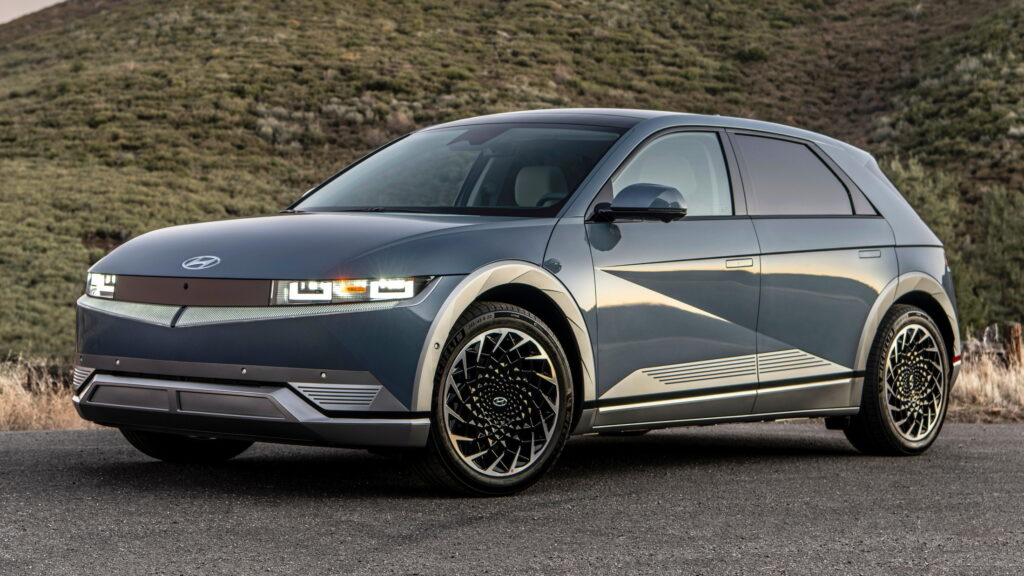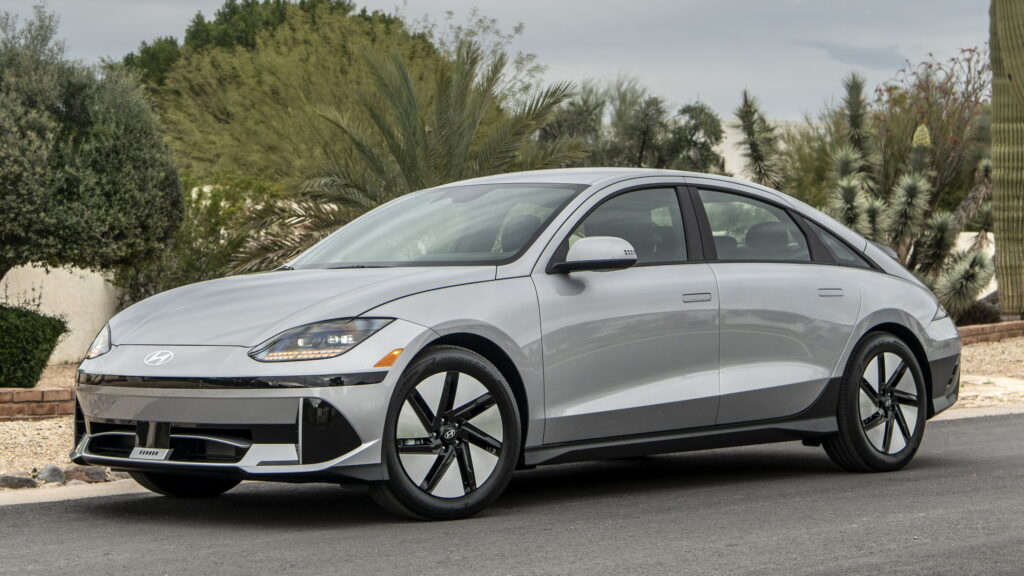Hyundai, Kia, Genesis Recall Nearly Every Single e-GMP EV In America

[ad_1]

Following a similar action in South Korea, where Hyundai, Kia, and Genesis recalled 170,000 EVs, the three affiliated companies are recalling what appears to be nearly every electric model in their lineup based on the e-GMP platform (and then some) in America due to the same issue with a component responsible for charging the 12-volt battery. Despite powering auxiliary systems rather than the motor, if the 12-volt battery becomes depleted, it may cause the vehicle to stall.
var adpushup = window.adpushup = window.adpushup || {que:[]};
adpushup.que.push(function() {
if (adpushup.config.platform !== “DESKTOP”){
adpushup.triggerAd(“4d84e4c9-9937-4f84-82c0-c94544ee6f2a”);
}
else{
adpushup.triggerAd(“6a782b01-facb-45f3-a88f-ddf1b1f97657”);
} });
In the United States, the recall affects the e-GMP-based Kia EV6 (48,232 units), Hyundai Ioniq 5 (69,316 units), Hyundai Ioniq 6 (18,017 units), and Genesis GV60 (6,709 units), as well as the M3 platform-based Electrified Genesis GV70 (3,083 units) and Electrified G80 (753 units). Overall, the recall encompasses 147,110 electric vehicles from the Korean group manufactured between 2021 and 2024.
The issue originates from the integrated charging control unit (ICCU). Hyundai first noticed a pattern in warranty returns relating to the part in October 2022 and commenced an investigation into heat damage on the low-voltage converter field effect transistors.
Read: Hyundai, Kia Recall 170,000 EVs In Korea, Global Recall Looms For Over 600,000
window._taboola = window._taboola || [];
_taboola.push({
mode: ‘thumbnails-a-mid’,
container: ‘taboola-mid-article’,
placement: ‘Mid Article’,
target_type: ‘mix’
});
window._taboola = window._taboola || [];
_taboola.push({
mode: ‘thumbnails-oc-2×1’,
container: ‘taboola-mid-article-thumbnails-organic’,
placement: ‘Mid Article Thumbnails Organic’,
target_type: ‘mix’
});
In April 2023, the National Highway Traffic Safety Administration (NHTSA) started its own investigation into the matter after receiving reports of vehicles experiencing a loss of motive power while on the road. Eventually, Hyundai determined that, under specific conditions, the ICCU’s internal components could fuse, hindering the charging of the 12-volt battery.

Fortunately, if that happens, the vehicles in question go into a “fail-safe” driving mode. This allows drivers up to 45 minutes (or as little as 21 minutes in a worst-case scenario) of driving time, accompanied by warnings about the fault, as power is gradually reduced to provide sufficient time to pull over. Eventually, the vehicle comes to a complete stop, potentially leaving its occupants stranded on the road.
Additionally, the automaker has already recalled 169,932 vehicles in South Korea for the same reason. Reports indicate that Hyundai and Kia may need to address as many as 600,000 vehicles globally due to this fault.
In the U.S., the automakers plan to start reaching out to owners on May 14. They will be asked to return their vehicles to a nearby dealer, where a technician will update the ICCU software to prevent overcurrents and implement voltage peak reductions at the end of the high-voltage battery charging to protect the component. If necessary, the ICCU fuse will also be replaced at no cost.
var adpushup = window.adpushup = window.adpushup || {que:[]};
adpushup.que.push(function() {
if (adpushup.config.platform !== “DESKTOP”){
adpushup.triggerAd(“5646c171-cb6e-4e2c-8440-49013ca72758”);
}
else{
adpushup.triggerAd(“e7c4c913-3924-4b2d-9279-6c00984dd130”);
} });

[ad_2]